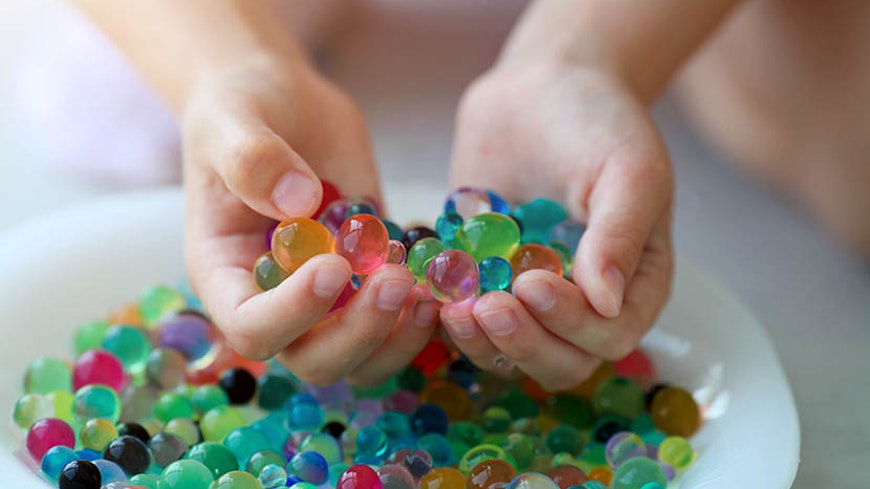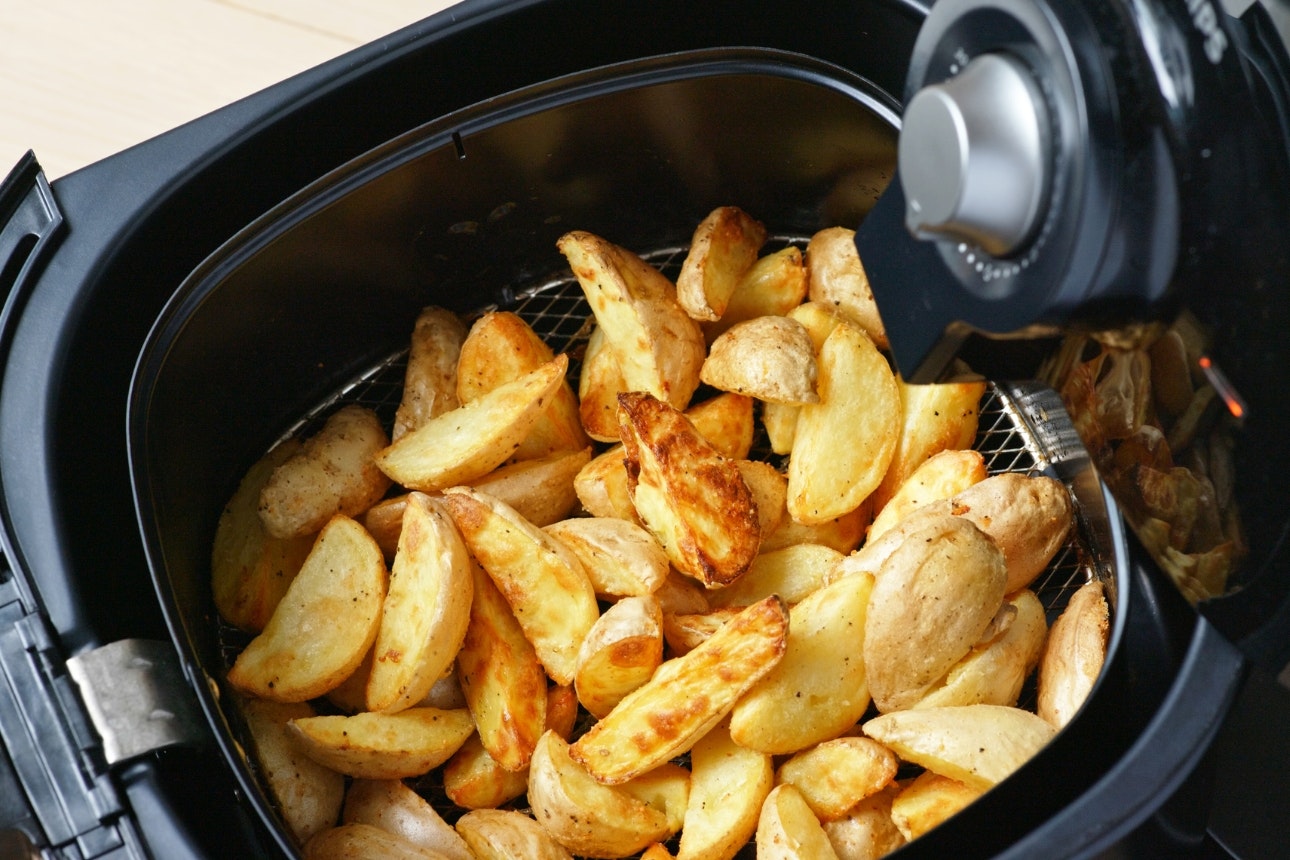
By Kate Harvey
Content Manager | Pou Whakahaere Ihirangi
Big stores such as Target, Walmart and Amazon recently announced they will stop selling water beads, but in New Zealand you'll still find them in the toy aisles. We've even found some that grow to the size of golf balls being sold online. So, is it safe to give kids water beads to play with?

Water beads are tiny polymer balls that look like sprinkles and grow when placed in water.
The beads are often advertised as being good for sensory and water play and helping with fine motor skills and hand-eye coordination. However, there’s a risk they may be swallowed by children and cause an obstruction that’s hard to detect with x-rays.
Water beads are also sold already expanded and look like jelly lollies so can be a choking risk for young children. Expanded beads can also shrink down if left out of their packaging and grow again once they’re hydrated.
In Australia, shops have been urged to stop selling unexpanded water beads as toys because children have needed to have them removed in hospital. Parents have been told by the Australian version of our Commerce Commission to stop using the beads as toys.
In the US this month, Amazon, Walmart and Target announced they will stop selling water beads marketed for children.
Back here, the Ministry of Business, Innovation and Employment’s advice on its product safety website is simply to store the dry beads away from children and keep the expanded beads somewhere they can’t be mistaken for lollies.
When we asked the ministry about water beads, its spokesperson for consumer protection, Ian Caplin, said it was a “supplier’s responsibility to ensure their products are of acceptable quality and safe to use”.
Caplin said parents should be aware of the risks and use common sense and supervision.
Safekids Aotearoa’s director Mareta Hunt also encouraged whānau to use safer options for water and sensory play with children under 3 years old.
Meanwhile, the National Poisons Centre had the most calls it’s ever had about water beads last year. While it received 16 calls about the beads in both 2001 and 2002, in 2023 it had 24 calls in the first 6 months alone.
Bill Boroughf, deputy director and medical/clinical toxicologist at the poisons centre, said over the past 7 years, 53% of people who called about water beads had been advised to seek medical advice, while 47% were advised to stay home and keep an eye out for symptoms.
Dr Boroughf said the smaller spheres, which are about 2mm in diameter, expand to roughly 1 to 1.5cm in diameter, while the larger spheres of about 1cm diameter expand to about 5.5cm.
“Most paediatric guidelines for foreign body ingestion note that objects less than 2cm will likely pass from the stomach through the pylorus and small and large bowel uneventfully. As such, ingestion of small, fully expanded water beads is of low risk.”
Accordingly, the centre’s advice when a bead has been ingested fully expanded and is less than 1.5cm in diameter, is to observe the child at home. The caller is told to look out for symptoms of bowel obstruction, which are refusal to eat, irritability, vomiting, abdominal distention or abdominal pain.
“Case reports of water bead-induced injuries are from the large versions of these expanding water balls, which expand beyond the average small bowel diameter of young children, resulting in bowel obstruction or perforation,” Dr Boroughf said.
The National Poison Centre’s water bead advice is:
treat expanded water beads like other choking hazards and don’t give them to children under 3 years
don’t buy water beads that can expand beyond 1cm – the beads should therefore have a dry diameter of less than 2mm
store dry beads out of reach of children and remove expanded beads when they’ve finished playing with them
never put water beads in a drinking vessel.
If you’re concerned someone has swallowed a water bead, or put one in their ear or nose, call the National Poisons Centre for free advice on 0800 POISONS (0800 764 766) or take the person to a hospital emergency department.

Subscribe to our newsletters
Get even more Consumer NZ news and invitations to share your voice on important issues straight to your inbox. You don’t have to be a member to have these newsletters emailed to you regularly.



